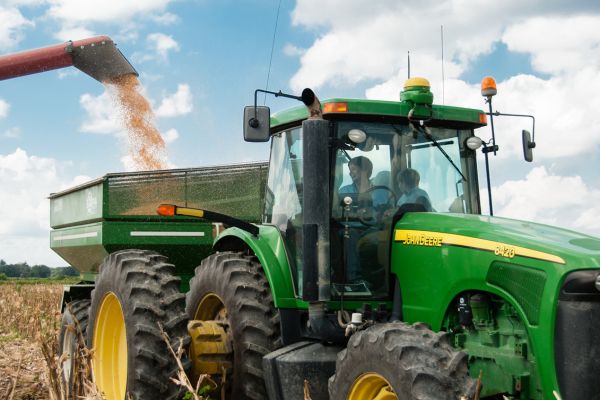Agriculture Jobs in Canada
Agriculture has always been a cornerstone of Canada’s economy, shaping its cultural and economic landscapes. The country’s vast landscapes and diverse climates make it an ideal place for a variety of agricultural activities, from crop production to livestock farming. With technological advancements and a growing global demand for sustainable and safe food production, agriculture in Canada continues to evolve, presenting numerous job opportunities. This essay will explore the various types of agriculture jobs in Canada, the importance of agriculture to the Canadian economy, and the skills and qualifications required for these roles.
The Importance of Agriculture in Canada
Agriculture is a vital sector in Canada, contributing significantly to the country’s GDP and providing employment to a substantial portion of the population. It encompasses a wide range of activities including crop production, animal husbandry, dairy farming, horticulture, and more. The sector not only ensures food security for Canadians but also plays a crucial role in the global food supply chain.
According to Agriculture and Agri-Food Canada, the agriculture and agri-food system is a key driver of the Canadian economy, with farm market receipts totaling over $60 billion annually. Moreover, the industry supports rural communities and provides opportunities for innovation and research in sustainable farming practices.
Types of Agriculture Jobs in Canada
Crop Production
Field Crop Workers: These individuals are responsible for planting, cultivating, and harvesting crops such as wheat, corn, soybeans, and canola. Their duties include operating machinery, applying fertilizers and pesticides, and ensuring the overall health of the crops.
Horticulturalists: Specializing in the cultivation of fruits, vegetables, flowers, and ornamental plants, horticulturalists work in greenhouses, nurseries, and on farms. They focus on improving plant growth, yield, and quality through scientific techniques and research.
Agronomists: Agronomists study and develop methods to improve crop production and soil management. They conduct research, provide advice to farmers on best practices, and work on developing new crop varieties that are resistant to pests and diseases.
Livestock Farming
Dairy Farm Workers: These workers are involved in the daily operations of dairy farms, including milking cows, feeding and caring for livestock, and maintaining equipment and facilities. They play a crucial role in ensuring the production of high-quality milk and dairy products.
Poultry Farm Workers: Involved in the raising and care of chickens, turkeys, and other poultry, these workers handle feeding, cleaning, and monitoring the health of the birds. They also collect eggs and ensure that the birds are kept in optimal conditions.
Livestock Technicians: These professionals work with various types of livestock, including cattle, pigs, and sheep. They are responsible for breeding, health management, and overall care of the animals. Livestock technicians also assist with veterinary procedures and record keeping.
Agricultural Technicians and Technologists
Agricultural Equipment Operators: These workers operate and maintain machinery used in farming activities, such as tractors, harvesters, and irrigation systems. They are skilled in using advanced technologies and machinery to improve efficiency and productivity.
Soil and Plant Scientists: Specializing in soil health and plant growth, these scientists conduct research on soil composition, fertility, and conservation. They develop sustainable farming practices and provide recommendations to improve crop yield and soil health.
Agricultural Engineers: These engineers design and develop agricultural machinery, equipment, and structures. They work on improving irrigation systems, storage facilities, and processing plants to enhance efficiency and sustainability in agriculture.
Skills and Qualifications Required
Educational Background
Most agriculture jobs require specific educational qualifications and training. For instance, a degree in agriculture, agronomy, horticulture, animal science, or a related field is often necessary for specialized roles such as agronomists, horticulturalists, and agricultural engineers. Technical positions like agricultural technicians and equipment operators may require vocational training or certifications.
Practical Experience
Hands-on experience is highly valued in the agriculture sector. Many employers prefer candidates with practical knowledge of farming practices, machinery operation, and livestock care. Internships, apprenticeships, and on-the-job training programs are excellent ways to gain this experience.
Technical Skills
Modern agriculture relies heavily on technology and machinery. Therefore, proficiency in operating and maintaining agricultural equipment, understanding precision farming techniques, and using software for farm management are essential skills. Knowledge of biotechnology, soil science, and crop genetics can also be advantageous.
Soft Skills
In addition to technical expertise, agriculture workers need strong soft skills. These include:
Problem-Solving: Ability to address and resolve issues related to crop health, livestock welfare, and machinery breakdowns.
Communication: Effective communication skills to collaborate with team members, supervisors, and external stakeholders.
Physical Stamina: Agriculture jobs often involve physically demanding tasks, requiring good physical health and stamina.
Attention to Detail: Precision in tasks such as planting, harvesting, and applying treatments to ensure optimal crop and livestock health.
Challenges and Opportunities in Agriculture Jobs
Challenges
Labor Shortages: One of the significant challenges facing the agriculture sector in Canada is a shortage of skilled labor. Many farms struggle to find and retain workers, particularly during peak seasons.
Technological Advancements: While technology improves efficiency, it also requires workers to continually update their skills. Adapting to new machinery, software, and farming techniques can be challenging for some workers.
Climate Change: Climate change poses a threat to agriculture by affecting weather patterns, water availability, and the prevalence of pests and diseases. Farmers and agricultural workers need to adapt to these changes to ensure sustainable production.
Opportunities
Innovation and Research: Canada is a leader in agricultural research and innovation. Opportunities exist for scientists and researchers to develop new farming techniques, crop varieties, and sustainable practices that can be applied globally.
Sustainable Farming: There is a growing demand for sustainable and organic farming practices. Workers with expertise in these areas are highly sought after as consumers become more conscious of environmental impacts.
Government Support: The Canadian government offers various programs and incentives to support the agriculture sector. These include grants for research and development, subsidies for equipment, and training programs for workers.
Regional Variations in Agriculture Jobs
Agriculture jobs in Canada vary significantly by region due to differences in climate, soil, and available resources.
Western Canada
Prairie Provinces (Alberta, Saskatchewan, Manitoba): Known for vast fields of wheat, canola, and other grains, these provinces offer numerous opportunities in crop production. Livestock farming, particularly cattle ranching, is also prevalent.
British Columbia: This province has a diverse agricultural sector, including fruit orchards, vineyards, and dairy farms. The mild climate and fertile soil make it ideal for a variety of crops and livestock.
Central and Eastern Canada
Ontario: Ontario is a major hub for agriculture, with significant production of dairy, poultry, fruits, vegetables, and grains. The province also has a strong agri-food processing industry, providing additional job opportunities.
Quebec: Known for its dairy and maple syrup production, Quebec also has a thriving horticulture sector. The province’s diverse agricultural activities offer jobs in various specialties.
Atlantic Canada
New Brunswick, Nova Scotia, Prince Edward Island, Newfoundland and Labrador: These provinces have smaller agricultural sectors but are known for specific products such as potatoes (PEI), blueberries (NS), and fisheries. Opportunities exist in niche markets and value-added production.
The Future of Agriculture Jobs in Canada
The future of agriculture jobs in Canada looks promising, driven by advancements in technology, increased focus on sustainability, and ongoing research and development. Some key trends shaping the future of agriculture jobs include:
Precision Agriculture: The use of GPS, drones, and data analytics to optimize farming practices is becoming increasingly common. Workers skilled in these technologies will be in high demand.
Automation and Robotics: Automated machinery and robots are being developed to perform tasks such as planting, weeding, and harvesting. This trend will require workers who can operate and maintain these advanced systems.
Sustainable Practices: There is a growing emphasis on sustainable and organic farming practices. Workers with expertise in these areas will find increasing opportunities as the industry shifts towards environmentally friendly methods.
Global Trade and Export: Canada is a major exporter of agricultural products. As global demand for Canadian products grows, so will the need for workers in production, processing, and logistics.
Conclusion
Agriculture remains a vital and dynamic sector in Canada, offering a wide range of job opportunities. From crop production to livestock farming and agricultural research, the industry provides diverse career paths. Despite challenges such as labor shortages and climate change, the sector is poised for growth, driven by technological advancements and a focus on sustainability.
For those with the right skills and qualifications, agriculture jobs in Canada offer not only employment but also the chance to contribute to a crucial and evolving industry.







